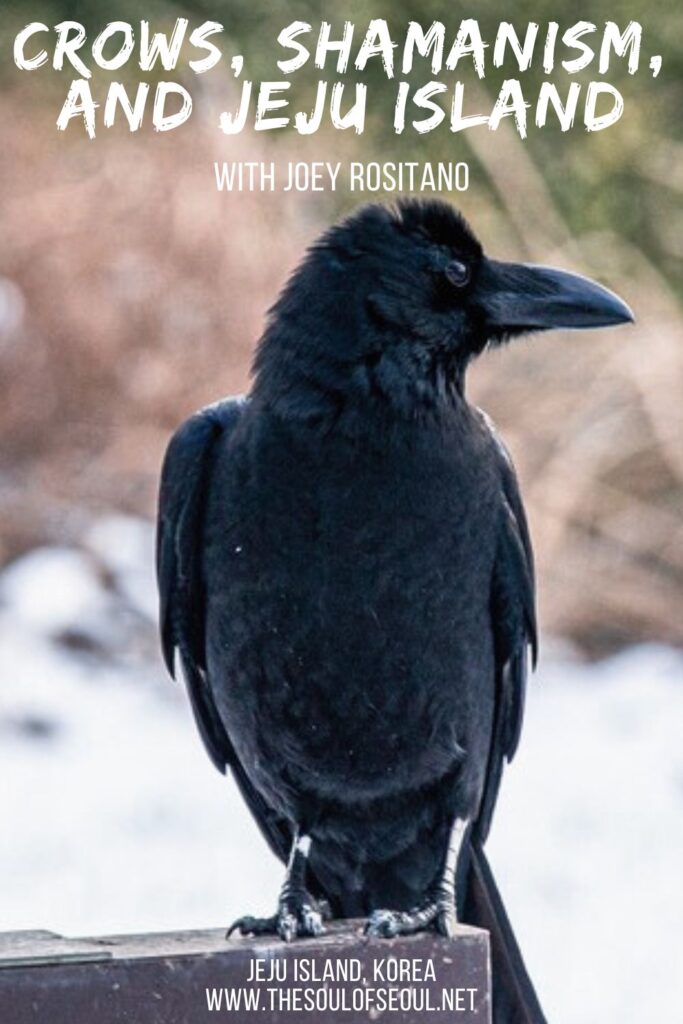Crows, Shamanism, and Jeju Island with Joey Rositano
While thousands of people visit Jeju Island in South Korea each month and visit the hot spots and beautiful beaches, there are few that have become as intrigued with the Shamanic practices and rites unique to the Korean island as Joey Rositano. There is more to the island famous for idyllic views and Korean honeymooners than many tourists ever realize.
Learn more about Rositano’s latest project called ‘Scattering’ which explores the fascinating and puzzling connection between crows and humans in the Shamanic ceremonies in the Darakut village of Jeju Island.

Learn more about the fascinating book called ‘Scattering’ and the writer, researcher, and photographer, Joey Rositano:
- Who is Joey Rositano?
- What is ‘Scattering’ about?
- How do crows play a role in Jeju Mugyo?
- A puzzling phenomenon
- A unique approach
- The research
- Learn more about Joey Rositano’s projects
*All photos in this article were provided by Joey Rositano, writer, researcher, and photographer of ‘Scattering’.
(This post contains affiliate links, which means I receive a certain percentage of a sale if you purchase after clicking at no cost to you. Thank you for your support.)
Who is Joey Rositano?
Joey Rositano, originally from Nashville, Tennessee, has been living and working on Jeju Island since 2006. Fascinated by the island’s shamanic shrines and their worship, Rositano embarked on a journey to explore and document this polytheistic religion, which remains largely unknown even to the city dwellers of Jeju Island. Drawing on his background in anthropology, Rositano created a documentary called “Spirits: The Story of Jeju’s Shamanic Shrines” and authored a 220-page photo book, providing captivating insights into this ancient tradition. That’s the first project I found out about and the book is just beautiful as well as very fascinating.
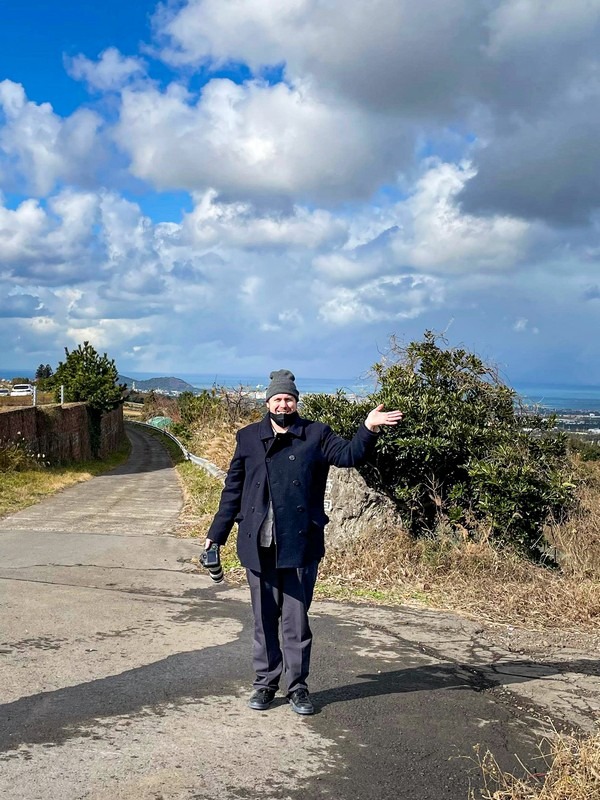
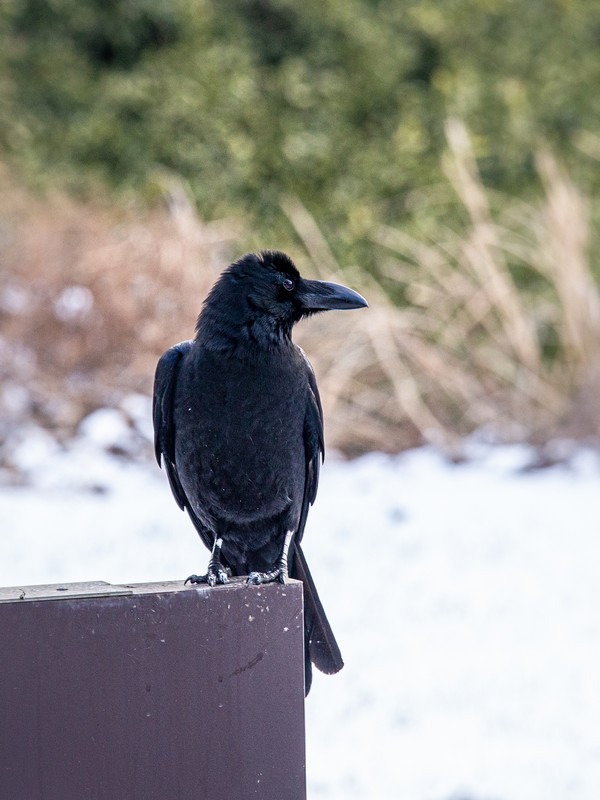
Continuing his exploration of Jeju’s unique cultural practices, Rositano now presents his latest project, ‘Scattering,’ a photography book centered around the crow feeding rituals on Jeju Island. These rituals are deeply intertwined with the island’s Shamanic faith, as the residents maintain a special relationship with crows and leave portions of food for them. Rositano spent five years documenting the bond between the people of the village of Darakut and the large-billed crows, shedding light on the ritualistic bird-feeding practices. This brings a whole different perspective to birdwatching in Korea.
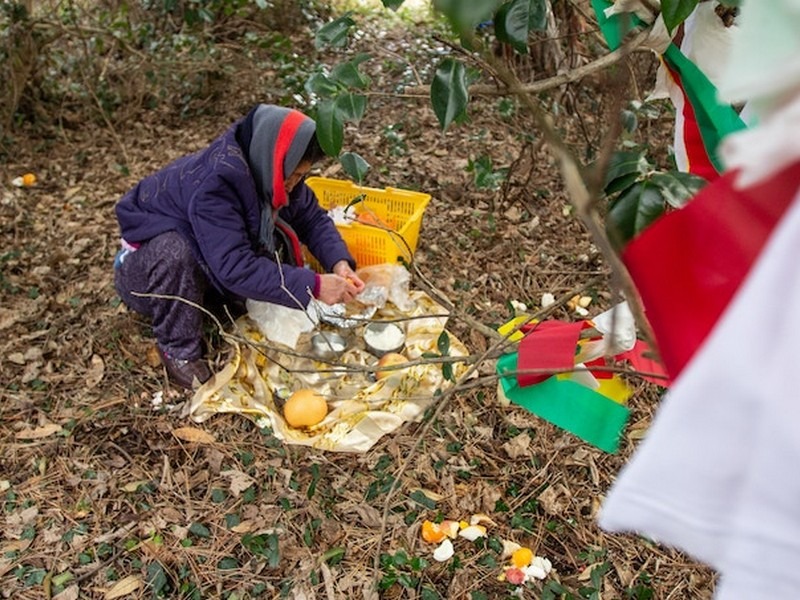
What is ‘Scattering’ about?
‘Scattering’ is a photography book that focuses on the crow feeding rituals found on Jeju Island in South Korea. Jeju Island’s native religion, Jeju Mugyo, reveals an intriguing connection between humans and birds, particularly crows. This phenomenon holds potential implications for understanding ancient relationships and the ways in which humans and crows perceive each other. The remarkable ability of crows to recognize faces further adds to the enigma surrounding their participation in the ritual crow feeding.
Over the course of five years, Rositano documented this unique bond between the people and the large-billed crows in the village of Darakut. ‘Scattering’ explores the ritualistic bird-feeding practices in South Korea and the profound implications they hold.
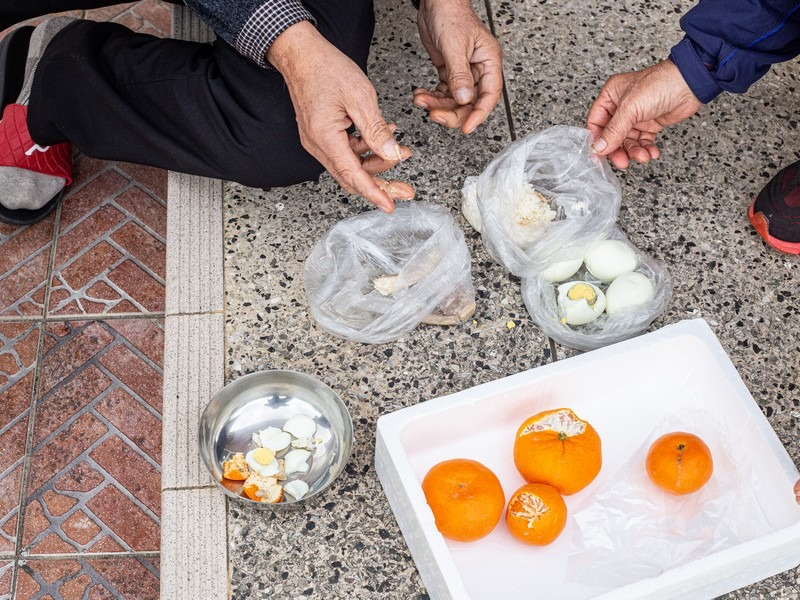
How do crows play a role in Jeju Mugyo?
Jeju Mugyo, the Shamanic religion specific to Jeju Island, encompasses a surprising bond between humans and birds, with crows playing a significant role. This connection might shed light on an ancient relationship, exploring how humans perceive crows and, fascinatingly, how crows perceive us. It appears that crows, along with other animals, are constantly observing us, often more than we realize. Well, maybe some of us more connected to our animal friends have realized.
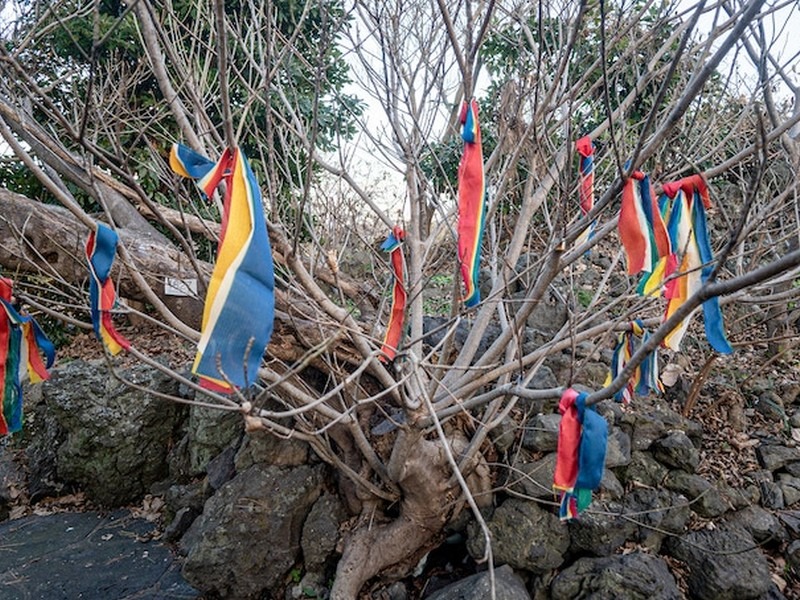
During his studies, he came across several articles on crow facial recognition and read numerous papers on the topic. This led him to realize that Jeju Island could provide insights into the origins of the amazing ability of crows and other corvids to recognize faces. Jeju Island has a wealth of fascinating cultural practices, and one of its cultural treasures is the ritualistic bird-feeding known as ‘scattering’, and now you know where the book gets its name.
A puzzling phenomenon
The crows’ ability to identify the specific days of the Shamanic ceremonies in Darakut is indeed a puzzling phenomenon though. On these ritual days, villagers make food offerings for the shamanic gods, and a portion of that food is left behind for the crows and other birds.
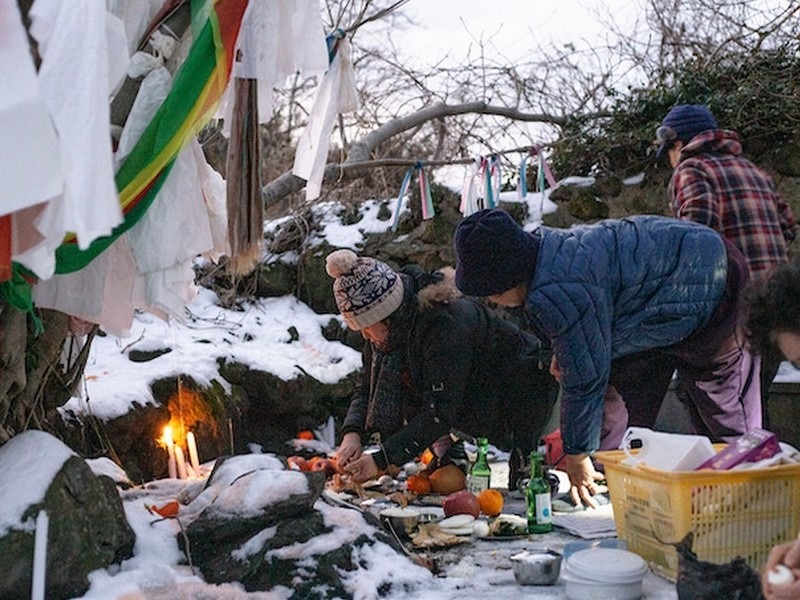
Surprisingly, the crows would consistently appear from many miles away, solely on these ritual days, to partake in the feast. It raised questions about how they knew to come. Could it be through sound, even though crows don’t have the best hearing? Or were they somehow aware of the cyclical nature of seasons, predicting when the ceremonies would occur? The villagers have their own theories based on years of observation. Interestingly, even when a single villager visited alone to make a smaller offering, the crows would join the feast.
We know that crows possess remarkable facial recognition abilities, so the possibility of facial recognition being involved here is quite intriguing. The more Rositano delved into this topic, the more fascinating it became to him.
A unique approach
‘Scattering’ stands out as a unique photography book that blends art and research. While capturing stunning visuals, Rositano provides a scientific approach to understanding the crow feeding rituals in Darakut. Through interviews with local residents, extensive research on corvid behavior, and his own observations, he uncovers the factors influencing the crows’ ability to recognize the days of the shamanic ceremonies and join in the feast.
The book aims to contribute to scientific knowledge while remaining accessible to readers. If it’s anything like this previous book, it’s definitely something you’ll want to have on your shelf.
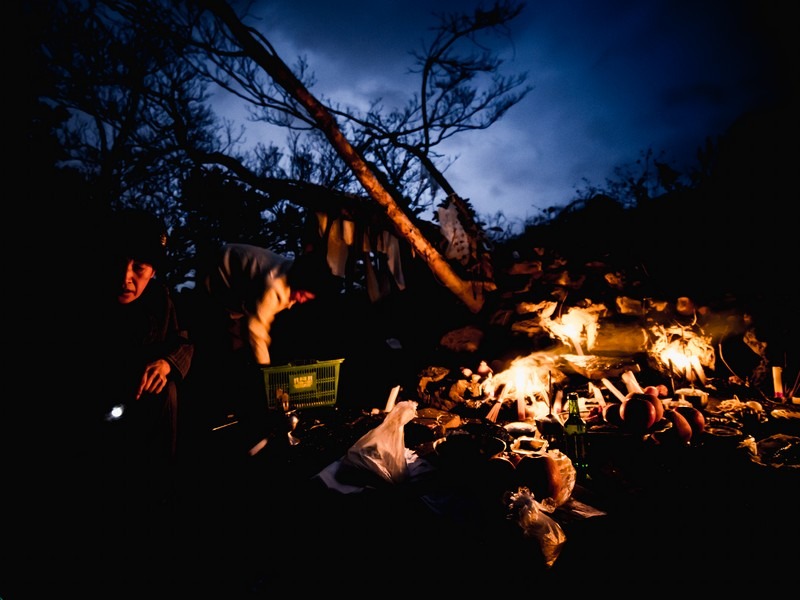
The research
The process of understanding the ritual crow feeding involved multiple approaches. Interviews with local residents were conducted to gain their valuable insights into this intriguing phenomenon. Their knowledge and observations played a significant role in unraveling the mysteries surrounding the crows’ behavior. Additionally, photography plays a vital role in visually representing the connection between the villagers and the crows.
To complement these firsthand accounts and visual documentation, there was extensive research on corvid behavior. The combination of interviews, photography, and thorough research allowed an approach to the topic from multiple angles that allows the reader to gain a deeper appreciation for the phenomenon of ritual crow feeding.
Learn more about Joey Rositano’s projects
If you want to learn more about shamanism on Jeju Island, they can visit Joey Rositano’s website at www.pagansweare.com or watch his TEDx talk from 2018. For more information about this project, read more in the ‘Scattering’ Kickstarter.
Did you like this post? Pin iT!
